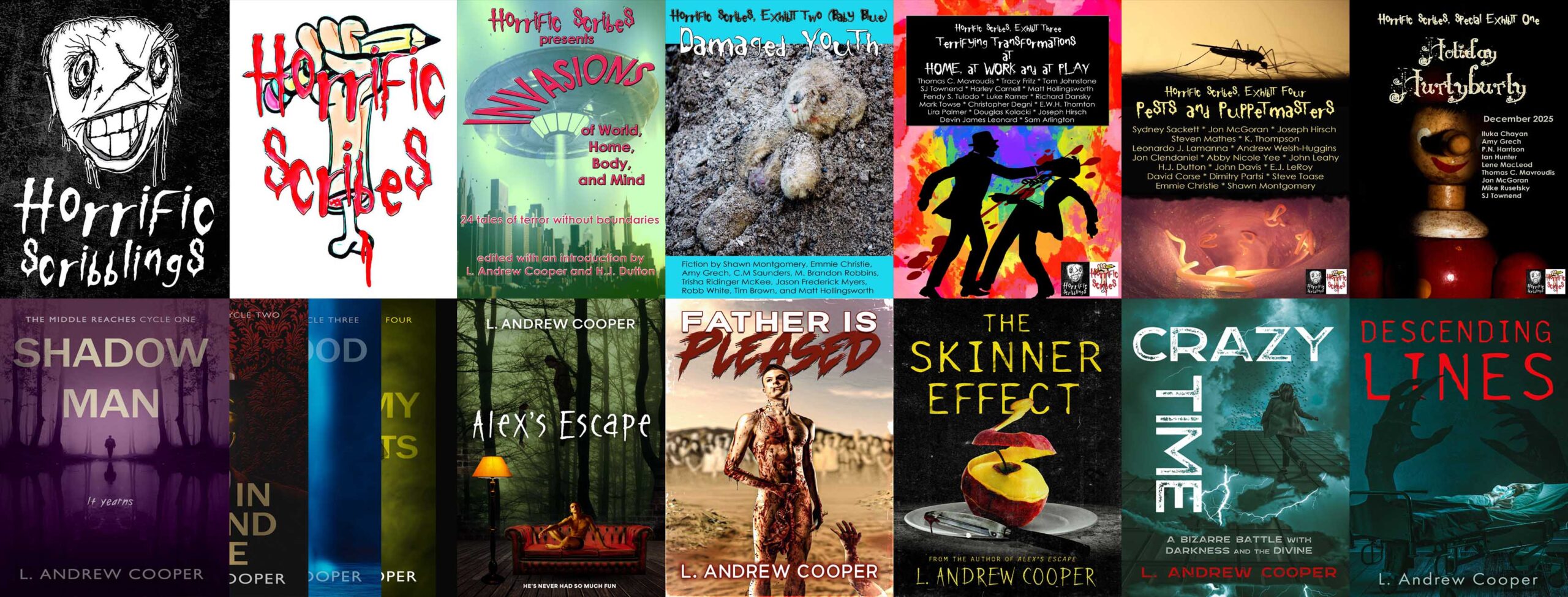Some minor deity has blessed me, for I have published a novel about insidiously contagious cult behavior at the same time that two high-quality network TV shows on the same theme have hit the airwaves. If you like these shows, you’ll like my book, Burning the Middle Ground, which means you and everyone you know should buy it and review it and BECOME ONE OF US. I mean, really, these things just snap right off, and then you’re part of the family.
The TV leader, The Following, seems most likely to survive: superstar Kevin Bacon is doing some of the best acting of his career, James Purefoy is even sexier than he was as Marc Antony in Rome, and Kevin Williamson has spawned his best concept since Scream. The Fox network has also put so much marketing muscle behind it that they really can’t afford to pull one of their famous cancel-it-just-to-piss-off-the-fans moves, so we’ll at least get another season, methinks.
Bacon (left) and Purefoy (right): beauty of murder in primetime.
The premise of The Following is that a Gothic literature-obsessed novelist/professor (you know we’re evil, right?) enjoys killing people and has, since being imprisoned, gathered a following of like-minded individuals and planned a new “novel” to be written as a real-life spree of killings across the country. So in typical postmodern Williamson fashion, it plays with media/reality boundaries, and it not only speaks to the type of writing I do, but it also features a killer who is, more or less, the type of person I am (except I don’t kill people, and I’m not nearly that good looking–coincidence?).
I really like The Following, but its inevitable survival is almost a shame, really, because it decreases the chances for Cult, the other cult-themed show that started around the same time. It doesn’t have the star-power, and the writing is admittedly much more muddled, but it’s a lot more daring. Cult, instead of playing media/reality games with good old fashion print obsessions, plays with television. You see, there’s this show-within-the-show called Cult, segments of which play during Cult, often without clear demarcations to let us know we’ve switched from one show to the other. In the show within the show, there’s a cult devoted to a charismatic leader, and in the show itself, there’s a cult devoted to the show, or maybe to the show’s creator, who is a shadowy, charismatic leader… the story and structure are wonderfully labyrinthine and full of possibilities. Given time to catch its stride, work out the kinks in its writing, and let its actors grow into characters as likable as the instant successes achieved by the veterans on The Following, Cult could not only become the better of the two shows, but it could be a milestone for television as art akin to Twin Peaks (granted, Twin Peaks was there from episode one, and Cult ain’t there yet).
Overlapping images reflect overlapping narratives in a show doomed to cancellation on the grounds of having too much potential.
Of course, what I REALLY want to know isn’t whether and how long these shows are going to survive, but what they’re going to do with their cult themes and what appetites they’re going to whet in the reading and viewing populations, for I have clear stakes. I take as the most obvious example the now waning–or at least waning until Brad Pitt appears in World War Z–zombie craze. Many of us who have been following zombie narratives for years look at the critical fervor over The Walking Dead and smile indulgently. I mean, it’s nice that people have finally realized that hey, these stories featuring people’s guts getting ripped out are really about loss of humanity under extreme circumstances, and dehumanization under the military industrial complex, and mindlessness under consumer capitalism, and exchanging decency for safety, and thoughtless slaughter in wars like Vietnam and Iraq, and yes, how lovely that someone finally came along and took such an awful, stupid genre like zombie stories and made an award-winning show like The Walking Dead that academics can have conferences about. Nevermind that zombie stories have been doing this stuff since the Romero turn of the 60s. Earlier, actually, if you count Matheson’s vampires in I am Legend as zombies… earlier still if you think about I Walked with a Zombie, White Zombie, heck, even freakin’ Bertha Mason in Jane Eyre or some of the ghoulies of eighteenth-century Gothic….
Rant about pretentious people needing trends to wake up to the smartness of horror over. My point is, it took a cult of zombies to get zombies the attention they have long deserved. Are we finally about to have a cult of cults to get cults the attention they have long deserved?
So far, The Following seems to be about how lonely, sexually confused people are susceptible to charismatic leadership that offers total acceptance in exchange for blind obedience and violent behavior. This is a good thing for a cult story to be about.
So far, Cult seems to about how mass communication cultivates paranoia and uncertainty about the truth and reliability of both people and information. This is also a good thing for a cult story to be about.
So far, my series, which begins with Burning the Middle Ground, seems to be about how people use institutional forms of power to create conflicts that ultimately redistribute power into the hands of a very few people who have very insidious plans. My world is also very supernatural, so in addition to the political stuff, I devote a lot of storytelling to my characters finding out what these forms of power are and how they work. I’m biased, of course, but I think supernatural political machinations are a good thing for a cult story to be about.
There’s more than enough room in the world for The Following, Cult, and the little fictional empire I plan to build when I’m not busy being an evil professor. Here’s hoping for a cult of cults!



Comments are closed.